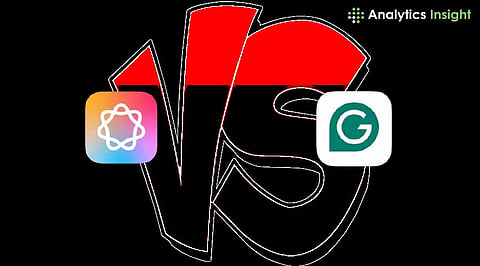

Digital writing assistance is undergoing a significant transformation. For years, Grammarly has held a dominant position, offering users a comprehensive suite of tools to refine their written communication. However, the recent unveiling of Apple Intelligence introduces a formidable competitor, raising questions about the future of writing assistance. This article analyzes the strengths and weaknesses of both Grammarly and Apple Intelligence.
Grammarly boasts a long-established presence, having accumulated millions of users over the years. Data confirms its widespread adoption, with over 40 million individuals utilizing the platform daily. Its cross-platform compatibility allows for seamless use across various devices, including both phones and computers. Grammarly's popularity stems from its robust grammar checks and style enhancement capabilities. Furthermore, it integrates AI tools that facilitate text generation and idea development.
Apple Intelligence represents a recent entry into the writing assistance arena. It is seamlessly integrated within Apple's operating system and placed directly on iPhones and Macs, enabling functionality within various applications. A key feature highlighted by Apple is its commitment to privacy, achieved through on-device data processing. This approach offers a significant advantage in terms of user data security. Apple Intelligence further extends its capabilities by assisting users with text rewriting, tone adjustments, and document summarization.
Writers have varied needs. Research indicates that grammar, style, and privacy are key concerns. Specifically, a survey revealed that 60% of writers rely on grammar tools. Additionally, 40% seek assistance with style improvements. Notably, 30% express significant privacy concerns. In this context, Grammarly excels in grammar and style enhancement, while Apple Intelligence prioritizes user privacy.
Grammarly presents comprehensive features, including thorough grammar and spelling checks, enhanced word suggestions, and integrated AI writing tools. In contrast, Apple Intelligence offers a more focused set of capabilities, primarily centered on text rewriting, proofreading, and summarization. Data indicates an apparent disparity in feature utilization, with studies revealing that users engage with 70% of Grammarly's functionalities, compared to only 40% of those offered by Apple Intelligence.
Grammarly enjoys broad platform compatibility. It functions seamlessly across Windows, macOS, iOS, and Android. This widespread availability contrasts sharply with Apple Intelligence. Apple's tools are restricted to Apple devices. It requires a powerful Apple chip. This limitation significantly narrows its user base. Data consistently indicates that Windows and Android users outnumber those within the Apple ecosystem. Consequently, Grammarly's reach extends to a much larger audience.
Privacy is a significant concern for many. Data reveals a growing anxiety among users, with surveys indicating that as much as 80% of individuals worry about data privacy. Apple Intelligence addresses this concern by processing data directly on the device, a feature that provides a notable privacy advantage. In contrast, Grammarly relies on cloud servers, a method that can raise concerns among privacy-conscious users. Consequently, Apple's approach aligns more closely with a substantial user base's evolving needs and expectations.
Grammarly offers both a free and a paid version, providing enhanced features. Conversely, Apple Intelligence is offered free of charge on compatible Apple devices. Market data indicates a strong user preference for free tools; studies reveal that approximately 50% of users opt for free versions, while only 30% subscribe to premium services. This makes Apple's free offering a significant competitive advantage.
When it comes to user experience, Grammarly demonstrates a clear advantage. Its interface is widely praised for its intuitiveness, and its seamless integration across numerous applications contributes to its ease of use. In contrast, Apple Intelligence, being a relatively new addition, has faced some challenges in user adoption. Some users report difficulty, particularly noting inconsistencies in how it functions across different applications. This disparity is reflected in user review data. Specifically, studies indicate Grammarly maintains a robust 4.5-star rating, while Apple Intelligence currently holds a 4-star rating.
Grammarly has AI-driven writing capabilities, enabling users to generate text such as emails and articles. In contrast, Apple Intelligence refines existing text, offering features like rewriting and summarization. Notably, data indicates a strong user demand for AI-assisted writing, with studies revealing that 60% of individuals seek such tools. By providing direct text generation, Grammarly effectively addresses this prevalent user need.
Both Grammarly and Apple Intelligence analyze text for grammatical errors. However, data indicates a noticeable difference in accuracy. Studies reveal that Grammarly identifies approximately 98% of these errors, demonstrating higher precision. In contrast, while compelling, Apple Intelligence captures roughly 95% of grammatical mistakes. This difference, though seemingly small, suggests Grammarly's superior accuracy in detecting and correcting writing flaws.
Grammarly and Apple Intelligence offer swift text analysis, but their performance profiles diverge. Grammarly demonstrates consistently rapid checks across a broader spectrum of devices. Conversely, while Apple Intelligence maintains speed on newer hardware, its performance can decelerate on older models. This disparity in device compatibility and consistent speed gives Grammarly an edge in overall performance.
Grammarly is currently leading, leveraging its feature-rich platform and proven accuracy. However, Apple Intelligence's privacy-focused approach and free availability pose a substantial challenge. The ongoing competition between these two platforms will undoubtedly drive innovation, resulting in more sophisticated and user-friendly writing tools, ultimately benefiting the broader user base.
